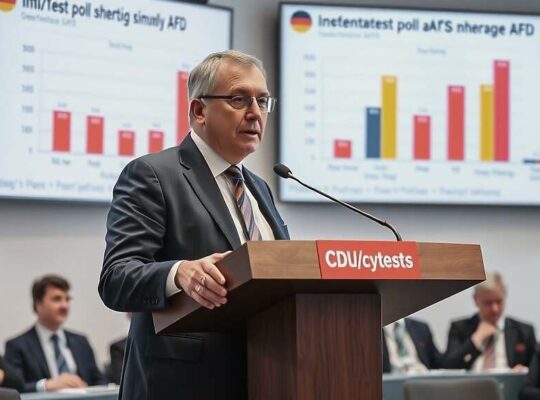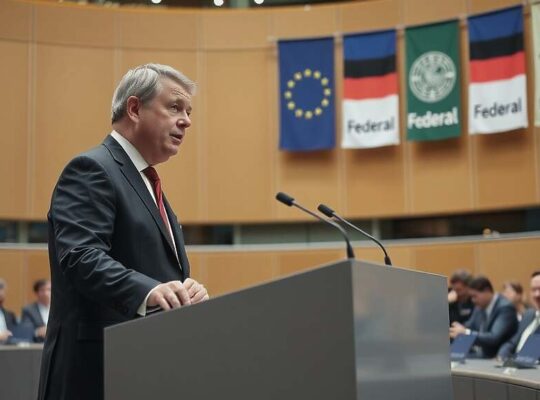The Christian Social Union (CSU), Bavaria’s dominant conservative party, is staunchly warning its sister party, the Christian Democratic Union (CDU), against any softening of its stance against the far-right Alternative for Germany (AfD). CSU General Secretary Martin Huber, in remarks to the Redaktionsnetzwerk Deutschland, underscored a firm rejection of any collaboration, describing the AfD as “a danger to Germany.
Huber’s criticism highlights a deepening rift within the center-right political landscape as the AfD’s support continues to climb in various regions. He accuses the AfD of being unduly influenced by pro-Kremlin actors and advocates a radical dismantling of Germany’s core international alliances, including withdrawal from NATO, the EU and the Eurozone.
Huber’s warning carries significant historical weight. He points to the cautionary tales of Christian democratic parties in other European nations, arguing that past compromises with extremist parties have invariably led to their own political demise. “Where Christian Democrats have cooperated with far-right parties, the Christian Democrats have vanished at the end” he stated plainly.
The CSU’s zero-tolerance policy now extends to all levels of government, including local municipalities. Huber prefers a strategy of direct political engagement – forcefully challenging the AfD’s ideologies and systematically undermining its support base through effective governance.
The debate is intensifying just as the CDU leadership prepares to address its own AfD strategy this Sunday. While a growing number of former CDU figures are tentatively suggesting a reassessment of the long-held “firewall” against the AfD, Chancellor and CDU leader Friedrich Merz has attempted to distinguish between national-level political cooperation and pragmatic local decision-making – citing instances like the allocation of resources for kindergartens or the planning of roadways. This nuanced approach, however, is already drawing accusations of softening the CDU’s commitment to a principled opposition to the far-right and fueling considerable tension within the broader conservative movement. The potential for splintering and the long-term impact on Germany’s political stability remain significant concerns.












